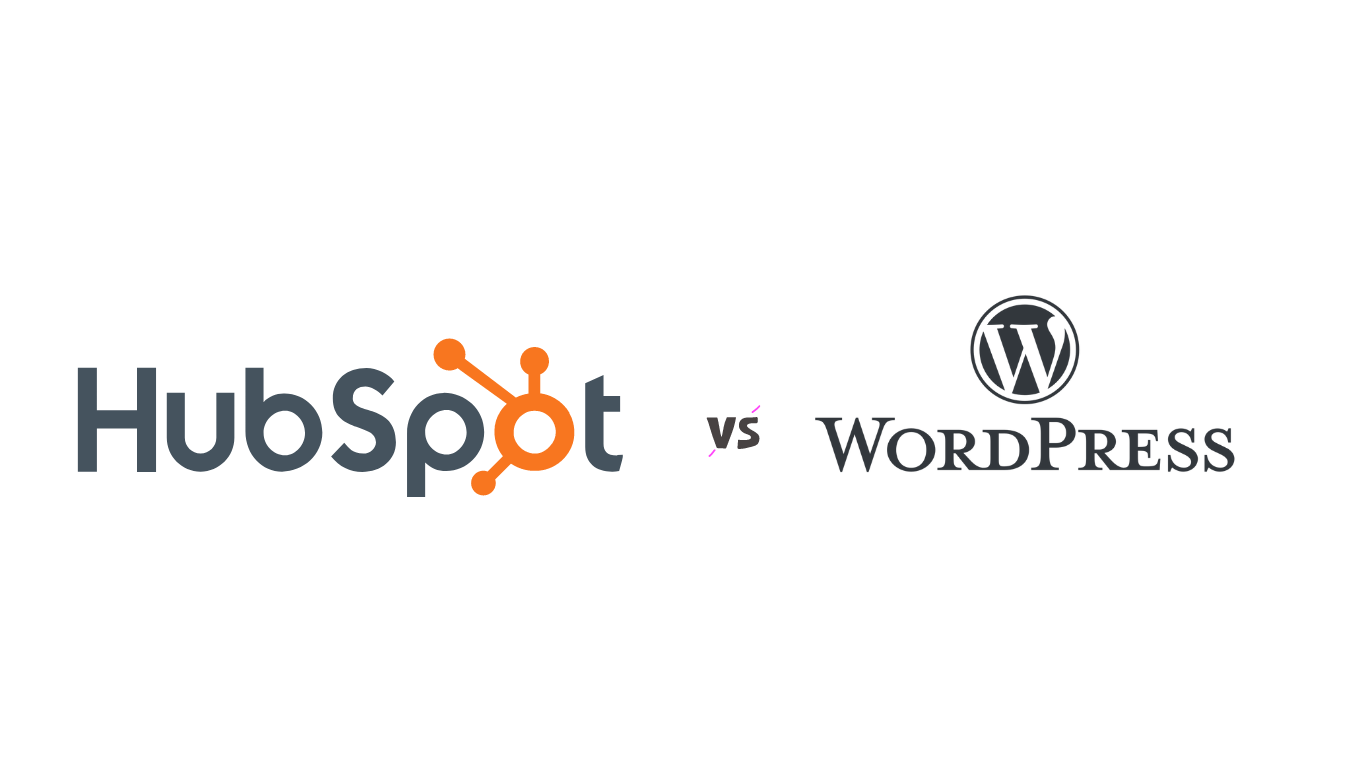WordPress and Hubspot are the most used content management system that helps business build their online presence and manage it efficiently through building websites managing content and tracking its progress. Though they both are used for the same cause they significantly differ greatly in functionality. WordPress is a Classical and Flexible platform used by existing and established businesses. It has wide functionality which has helped the business build, create and manage websites.
WordPress Characteristics:
- Content Creation
- Themes and templates
- Plugins and extensions
- Users management
- SEO Optimization
- Media Management
- Widgets
- Securities and authority
- Responsive Designs
- Multilingual Support
- E-commerce
Hubspot
HubSpot Leading provider of all-inclusive CRM, marketing, sales, and customer support software solutions is HubSpot. HubSpot enables businesses to improve customer engagement and streamline operations.
HubSpot’s multidimensional platform seeks to integrate and streamline multiple components of the operations of a business, boosting growth and efficiency across the customer journey.
Hubspot Characteristics:
- Customer Relationship Management (CRM)
- Marketing Automation
- Sales Enablement
- Customer Service
- Analytics and Reporting
- Content Management System (CMS)
- Integration Capabilities
- Lead Generation
Although WordPress and HubSpot serve different core purposes, they do share certain common characteristics, especially when it comes to managing online content and improving digital marketing strategies.
Here are some common functions between HubSpot and WordPress:
Website Creation and Management:

- WordPress is widely recognised for its range of features, allowing users to quickly develop and operate websites. It consists of customizable pages, dynamic blogs, intuitive menus, and media galleries.
- HubSpot: HubSpot is also an effective website management tool that offers tools for creating pages, blogs, and menus. Its integrated platform guarantees a consistent approach to content and design.
Content Management

- WordPress is a content management leader, enabling users to create, edit, and publish a broad range of content types such as blog posts, articles, and landing pages. Comments allow users to manage their interactions with other users.
- HubSpot has an integrated content management system, users can create, optimize and organize content based on their objectives. It supports a variety of content types and fosters customer engagement.
Search Engine Optimization:

- WordPress is identified for its optimised search engine architecture, WordPress offers tools and plugins for optimising website content. Users can customise meta tags, permalinks, and other elements to improve their search engine visibility.
- HubSpot incorporates SEO tools to assist users in optimizing their content for search engines. It provides insights and recommendations to improve SEO performance across the platform.
Analysis and Reporting:

- WordPress Users have access to plugins and built-in tools to monitor website analytics, user conduct, and performance indicators. These insights help to refine content and marketing strategies.
- HubSpot’s integrated analytics tools provide detailed information about website traffic, user interactions, and campaign performance. Users can make data-driven decisions to improve their strategies.
Integrations:

- WordPress has an extensive collection of plugins, users can integrate their websites with a variety of third-party apps and services. This flexibility improves the website’s functionality.
- HubSpot has application integration capabilities, HubSpot effortlessly integrates with a variety of thirdparty applications, extending its functionality and providing a unified experience across multiple tools.
- WordPress and HubSpot offer solid options for website creation and management. WordPress is an elastic content management system, whereas HubSpot combines content, marketing, sales, and service features in a single platform. Whether users choose WordPress for its flexibility or HubSpot for its integrated approach, the common features of these platforms can help them create and manage successful online presences.
- WordPress and HubSpot serve unique primary purposes, and while there are some similarities, their core functionalities and target audiences are distinct. Here’s an overview of how WordPress and HubSpot differ:
Primary Purpose:

- WordPress is a widely used content management system (CMS) for creating and managing websites. It is known for its adaptability, extensive theme and plugin ecosystem, and suitability for a wide range of websites, including blogs, portfolios, and e-commerce sites.
- HubSpot is marketed as an all-in-one platform, that combines customer relationship management (CRM), marketing, sales, and customer service tools. It focuses on creating a unified environment for inbound marketing and managing the entire customer experience.
Flexibility and Customization:

- WordPress is highly programmable and customizable, permitting users to completely personalize their websites using themes, plugins, and custom code. This flexibility makes it appropriate for a broad spectrum of industries and applications.
- HubSpot is customisable, and HubSpot takes a more structured approach. It offers a pre-built framework for inbound marketing, complete with modules and tools. There are customisation options available, but they may not be as extensive as those found in WordPress.
Marketing and CRM Integration:

- WordPress entails third-party plugins for CRM and marketing features. Integration options exist, but they frequently require additional tools to achieve the same level of integration as HubSpot.
- HubSpot incorporates seamlessly with its own CRM to provide a single dashboard for marketing, sales, and customer service. HubSpot’s strength is in offering a comprehensive solution for inbound marketing practices.
E-commerce:

- WordPress provides an extensive range of solutions for e-commerce through plugins such as WooCommerce. Users can create fully operational online stores with a diverse set of features.
- HubSpot supports e-commerce integrations, HubSpot’s main emphasis is marketing and CRM. Users who demand advanced e-commerce functionality may find dedicated e-commerce platforms more appropriate.
User Base and Target Audience:

- WordPress fuels a sizable portion of the internet and serves a diverse user base, ranging from individual bloggers to large enterprises. Its versatility appeals to users with varying technical backgrounds.
- HubSpot is Designed for businesses seeking an integrated platform to manage marketing, sales, and customer service. HubSpot is particularly popular among small and medium-sized businesses that use inbound marketing.
Cost

- WordPress is an open-source platform with free software, but it charges fees for domain registration ($10-$20 per year) and hosting ($3-$30+ per month). Premium themes and plugins can cost between $30 and several hundred dollars. HubSpot provides a free CRM, but its Marketing, Sales, and Service Hubs are priced differently, with plans ranging from a few hundred to several thousand dollars per month, depending on features and usage.
- HubSpot CMS Hub has additional costs for website hosting, based on the number of pages. Both WordPress and HubSpot help with online presence and marketing, WordPress is a versatile CMS that can be used by a wide range of users, whereas HubSpot is a comprehensive platform designed for businesses looking for an integrated solution for inbound marketing and customer relationship management. Users frequently select between them based on their specific needs, technical expertise, and desired level of integration and structure.
What to choose: WordPress or Hubspot?
WordPress:
- Ideal for cost-conscious users and e-commerce websites.
- Open-source platform with free software; however, domain and hosting fees apply.
- Provides flexibility and extensive customisation via themes and plugins.
- Suitable for those who value cost-effectiveness and a wide range of website types.
HubSpot:
- Strategic investment for businesses that rely heavily on their websites for marketing.
- Integrated platform with Marketing, Sales, and Service Hubs; tiered pricing based on usage.
- Provides free tools such as CRM, Marketing Free, and HubSpot Sales to help you generate leads.
- Viewed as a worthwhile investment, particularly for businesses that prioritise comprehensive inbound marketing and CRM integration.
Both WordPress and HubSpot help with online presence and marketing, WordPress is a versatile CMS that can be used by a wide range of users, whereas HubSpot is a comprehensive platform designed for businesses looking for an integrated solution for inbound marketing and customer relationship management. Users frequently select between them based on their specific needs, technical expertise, and desired level of integration and structure.
Deepak Kumar is experienced Digital Marketing Manager with over 12 years of experience in developing and implementing successful digital marketing strategies across various industries. he is skilled in driving traffic, engagement, and conversions through a variety of channels, including SEO, SEM, Email marketing, social media, and content marketing. He has A proven track record of achieving business objectives and exceeding KPIs through data-driven insights and strategic planning.









